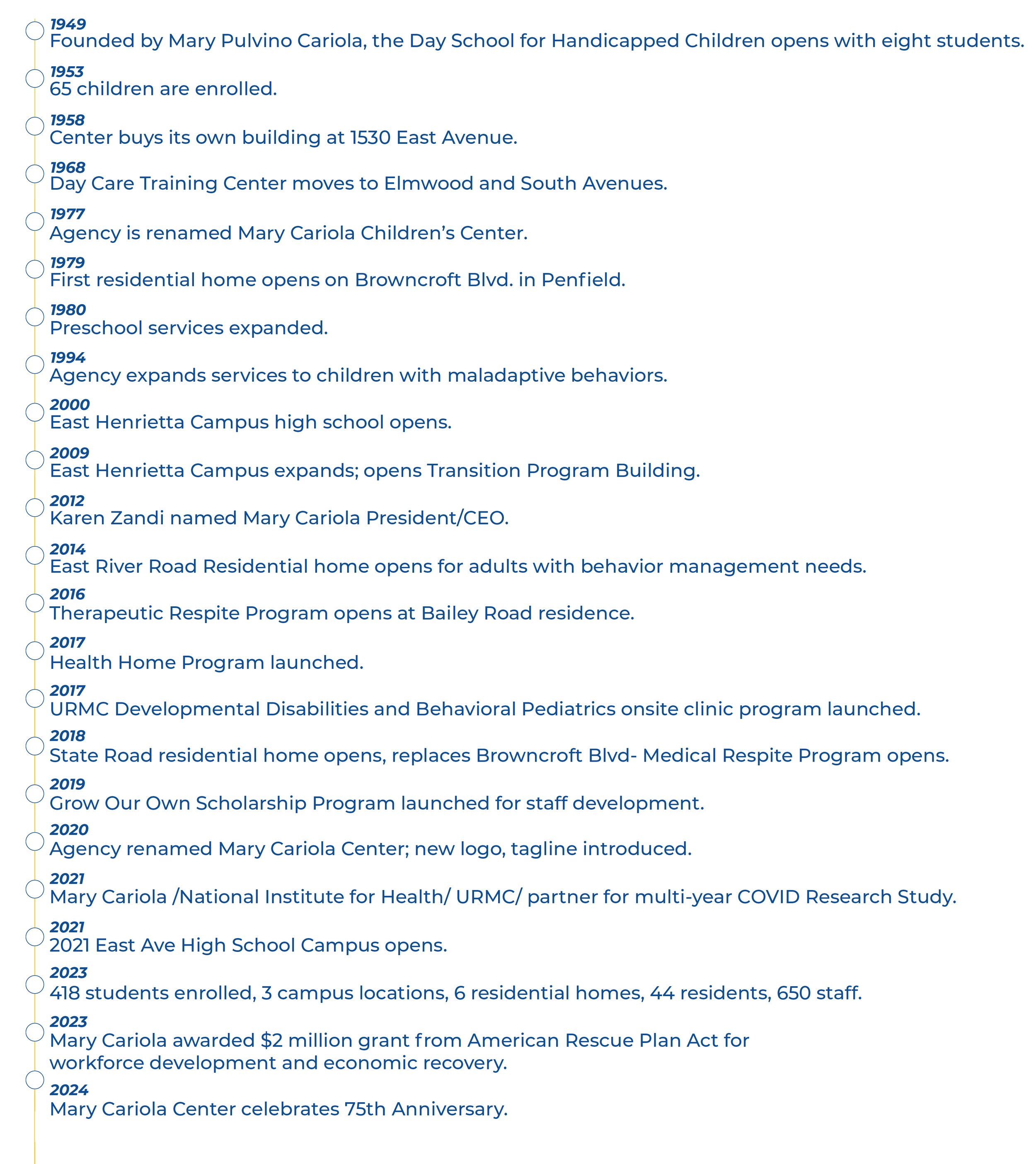It all started with Mary
Mary Pulvino moved to an Italian-American community in Rochester with her family when she was a child. As a teenager, she was an interpreter and advocate for her immigrant neighbors who had difficulty communicating in their new culture. This was just the beginning of Mary's fight for other people's rights.
In her adult years, Mary worked as a deputy employment certification officer for the Rochester Board of Education and later as a caseworker for the Society for Prevention of Cruelty to Children. Here she learned about discrimination, poverty and unacceptable treatment of children and she learned how to fight harder for people in need.
In 1944 Mary's sister, Jeanette Borelli, gave birth to Butchie, who was born with severe developmental and physical disabilities. Through his preschool years, his family was able to care for him at home. However, when Butchie reached school age, the family learned that no school could accommodate him.
Although Mary was in her fifties and ready to retire, this was an injustice she could not ignore. She joined forces with six other families in similar situations, and they opened The Day Care Center for Handicapped Children, designed to provide social, recreational and vocational experiences for children not eligible for public school, within the limits of their capacity. Despite the prejudice shown by the people who asked, "Why bother?" her tenacity and commitment broke ground for the ideas exemplified today in the Americans with Disabilities Act.
The Agency was renamed Mary Cariola Children's Center in 1977 — 10 years before Mary's passing — to honor her dedication to offering the highest quality innovative educational programs and small group homes for individuals with complex disabilities. She believed that the Center should accept any child no matter what physical or mental disabilities they had. Today, the Center still honors Mary's wish, and has grown from an original enrollment of eight students to serve more than 450 students, 44 individuals residing in six residential homes, and is steadfast in her vision of unlocking lifelong potential for people with complex disabilities.








